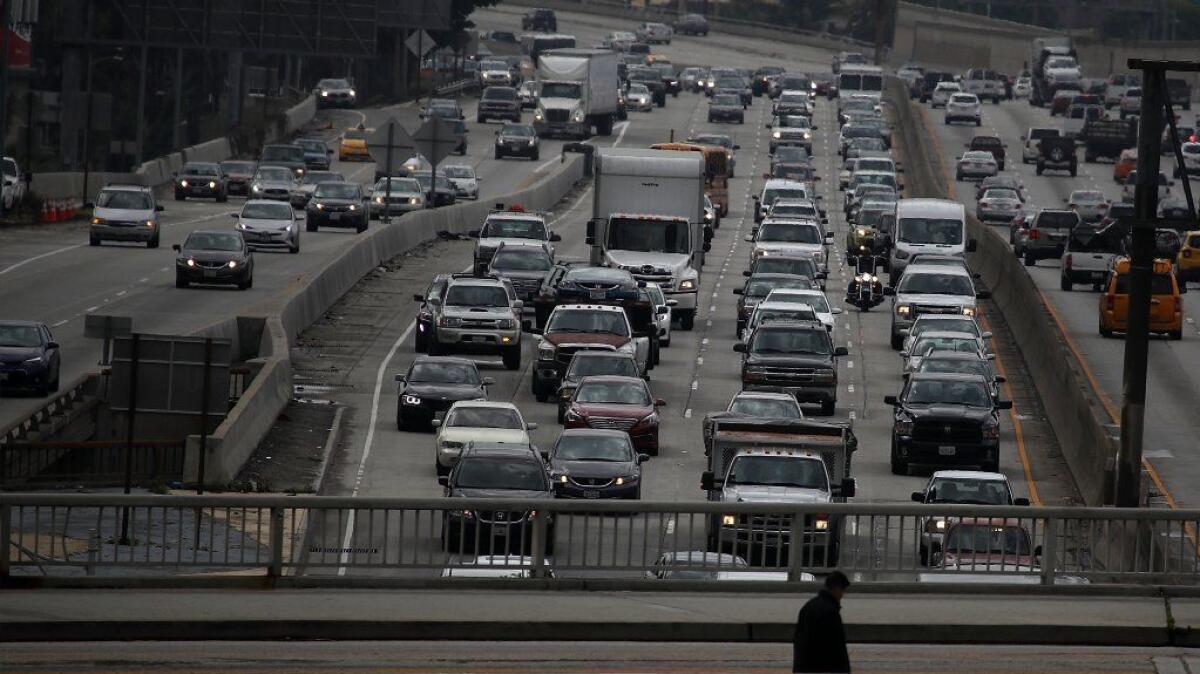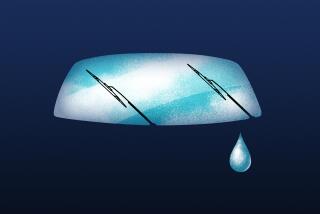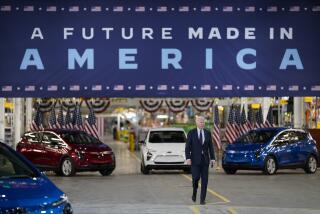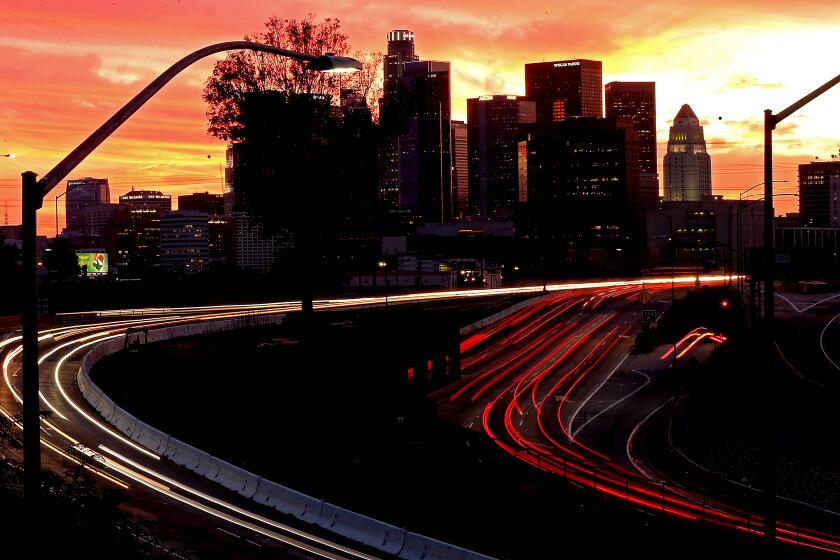Readers React: Humans aren’t killing the planet, but their cars sure are

To the editor: Your editorial about the United Nations’ grim report on mass global extinction states, “This is the first such crisis in which the blame does not fall on a massive asteroid strike or pervasive volcanic activity but on the behavior of a single species: us.”
So, who is “us,” and what is a “species”? Does the advent of a consumer class of “automobile-dependent post-humans” indicate the presence of a new species? Are there now people who have lost the ability to think without their automobiles? If you don’t believe me, just go to any government meeting having to do with transportation. And by the way, look at the world where you live — this is not “human” infrastructure we have, this is automobile infrastructure.
The good news is that this species of car-dependent humans is so totally dedicated to making available as much carbon in the biosphere that the rise of the next dominant species is secured once this extinction event has ended.
So, which are you, a human (also known as a professional jaywalker) or an auto-dependent post-human (the “us” in the editorial board’s vocabulary)?
Paul Berry, Santa Ana
..
To the editor: Your editorial correctly notes that since 1970, world population has grown from 3.7 to 7.6 billion.
Today, the glaring truth in the mirror is so obvious: There are now 7.6 billion pairs of eyes staring back at us. The idea that humans can continue to replicate beyond replacement, often in the most desperate of societies, is simply condemning us all to a dead end.
You failed to make one point: that for humans to preserve our access to water, food and other resources, we must transition to plant-based diets.
Doug Lenier, Valley Glen
..
To the editor: The devastating U.N. report on the state of nature highlights humans’ land use as a major threat to biodiversity. You rightly call out the federal government and Republicans in Washington for dangerous environmental policies.
However, local governments bear much of the blame for our urban sprawl. With this report in mind, the L.A. County Board of Supervisors must reverse its approval of the Tejon Ranch Co.’s Centennial development. Indeed, it should revisit all of its decisions on development that remains unbuilt.
Any project that will gobble up precious acres of open space and commit workers to long commutes must be a thing of the past.
Those of us who want to live in a sustainable world and our descendants will thank the supervisors for changing course and prioritizing the environment.
Sarah Tamor, Santa Monica
..
To the editor: To the calamity of climate change, we humans are adding the extinction of our fellow creatures, threatening our own species’ future. What can we do to survive and thrive?
The supremacy of profit and economic competition have led us to disregard the welfare of both nature and humans. We don’t need an economy that discards employees whenever it can save money, we need one that provides meaningful work. The planet requires the same.
Agribusiness has decimated family farming and is destroying topsoil; when humans lovingly care for the land, both agriculture and people thrive. Automation is a boon when it frees people from drudgery, but not when it leaves them jobless; the answer is to support the sectors, like healthcare and education, where the human touch is fundamental.
To ensure a livable planet, we must make the well-being of humans our top priority.
Grace Bertalot, Anaheim
Follow the Opinion section on Twitter @latimesopinion and Facebook
More to Read
A cure for the common opinion
Get thought-provoking perspectives with our weekly newsletter.
You may occasionally receive promotional content from the Los Angeles Times.





